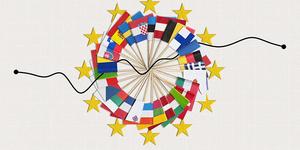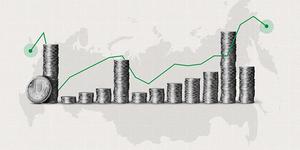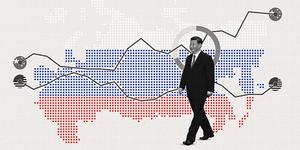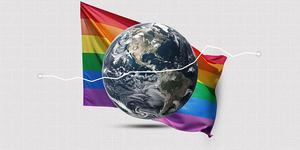Europe
Explore Â鶹´«Ã½'s research.

Â鶹´«Ã½'s latest update on global safety shows people worldwide feel safer today than they did a decade ago, but many countries have a long way to go.

U.S. leadership approval within NATO countries fell sharply in 2025, dropping 14 percentage points to 21%.

Approval of the EU's leadership among its member states remained high at 60% in 2025.

On average, Russian and Ukrainian leadership receive similar approval ratings from their regional neighbors, but there are underlying divisions.

Explore the connection between global peace, wellbeing and health in this report based on 145,000+ interviews across 144 countries and areas.

French confidence in national institutions collapsed in 2025 amid a year of political upheaval.

Britons' confidence in their national courts and local police fell sharply in 2025, even as their faith in other institutions held firm.

The 17-percentage-point drop in U.S. religiosity over the past decade is among the largest declines measured in the Â鶹´«Ã½ World Poll.

Â鶹´«Ã½ data show that Russians feel more positive about their economy than they did before the Ukraine invasion, but strain is beginning to appear.

Russian approval of China has hit record highs recently, aligning Moscow closer to Beijing than Washington and surpassing Pakistan and Iran.

Â鶹´«Ã½'s new report on emotional health shows negative emotions remain far above levels from a decade ago, with implications for global peace and health.

By 67% to 31%, Americans are more pessimistic than optimistic that an agreement between Ukraine and Russia can be reached to end the war.

Since Russia's invasion in 2022, Ukrainian public opinion has changed significantly about the war, international relations and domestic affairs.

New data from Ukraine show the public favors ending the war with Russia through negotiations, as support for fighting until victory has plummeted.

A new analysis shows global wellbeing is continuing to rise, but most are still not thriving.
Since creating the World Poll in 2005, Â鶹´«Ã½ has conducted studies in more than 160 countries that include 99% of the world's adult population. The Â鶹´«Ã½ World Poll tracks the most important issues worldwide, such as food access, employment, leadership performance, and well-being.

Â鶹´«Ã½ World Poll data show a strong association between people's satisfaction with local conditions and their confidence in national institutions.

Â鶹´«Ã½ trends show that the world remains divided over whether local communities are good places for gay and lesbian people to live in.

Younger men in the U.S. feel lonelier than the rest of the country, and lonelier than other young men in their age group across the OECD.
The country's workforce boasts impressive advantages, including high literacy, education, and labor participation rates. But it would benefit from greater employee engagement.